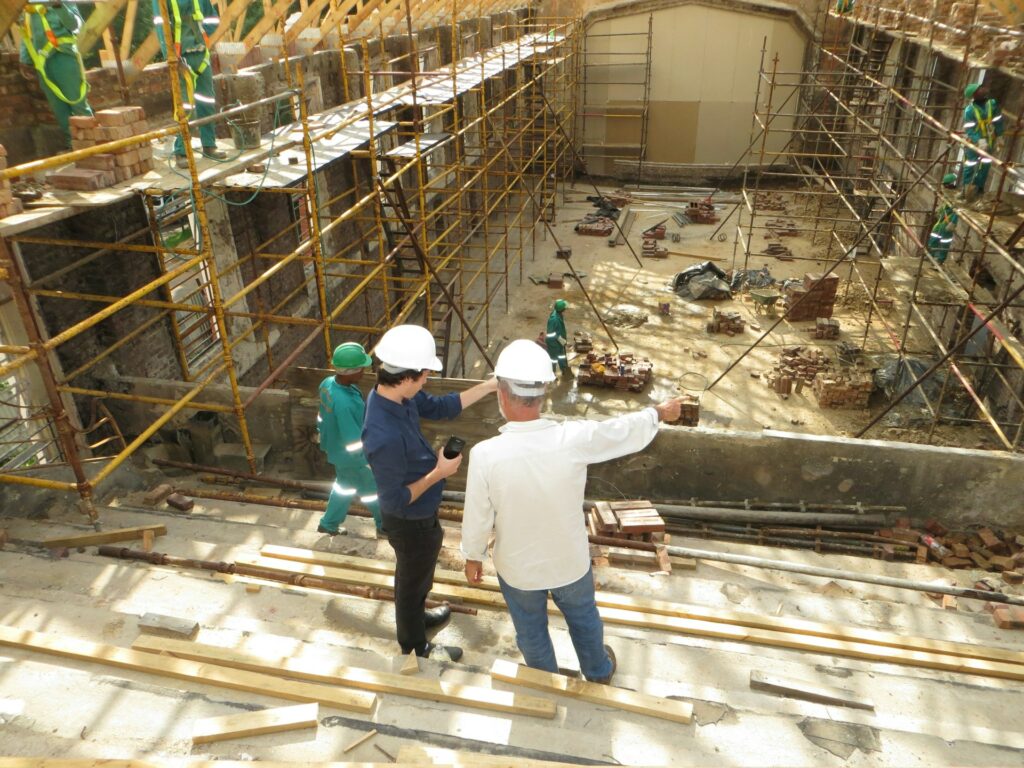Contract Administrators: Who are they and what do they do?

Introduction
Ensuring that a construction contract is properly administered is essential. This is where the role of the contract administrator comes in. The role of a contract administrator has effectively been in existence for centuries, although the term was not formally introduced until amendment 4 to the JCT 1980 form in 1987. In essence, the contract administrator manages the contract between the employer and the building contractor.
The roles of employer’s agents and contract administrators share a number of similarities but they can often be confused – however these roles have important differences. Whilst both roles are similar, for example issuing certificates during the life cycle of a project and applying the terms of the contract, the fundamental difference comes in the duty to act impartially as a contract administrator when acting as a decision maker. Contract administrators acting as decision makers, must act independently, impartially, honestly and fairly (Sutcliffe v Thackrah [1974] AC 727).
The role of a contract administrator covers a wide range of possible responsibilities and projects, ranging from small residential projects through to larger commercial projects – the responsibilities of a contract administrator will therefore vary depending on the project type and the building contract and professional appointment under which the contract administrator is appointed.
This blog gives a general overview of: (i) the duties of a contract administrator; (ii) the pros and cons of a professional contract administrator; and (iii) challenging the contract administrator’s decision.
What is a Contract Administrator?
A contract administrator manages contracts made between building contractors, employers, and clients. Their responsibility is to administer construction contracts, whereby they may act as project managers, engineers, consultants and client representatives. Their specific roles and duties should be agreed by the construction company and the client and may be different for each project.
What Does a Contract Administrator Do?
A Contract Administrator’s primary duties encompass preparing, negotiating, and evaluating various company contracts, such as those related to sales, purchases, and business partnerships. Their role involves ensuring legal compliance, assessing potential risks, and maintaining well-organized records.
In broad terms these responsibilities and duties will include ensuring the contractual procedure provided for is followed and managing the day-to-day running of the contract. The scope of the responsibilities and duties resting with the contract administrator will vary depending on the contract between the parties. An example of this is that under the JCT form of contract, the contract administrator may be required to determine when practical completion is achieved, approve the quality of materials to be used or provide instructions if there are discrepancies in the documentation. Under the NEC form of contract, the contract administrator is the project manager and the role therefore extends to proactively managing the project.
Some examples of the kinds of duties contract administrators generally have include:
a) Ensuring that the works are progressing in accordance with the contract programme and therefore that the completion date is achieved by the parties.
b) Report to the employer on progress of works.
c) Managing the commissioning of works.
d) Supervising works and inspecting works.
e) Providing instructions to the contractor.
f) Managing defects.
g) Determining applications for an extension of time.
h) Managing adjustments to the contract price.
i) Keeping records. This could include keeping records of site visits, correspondence etc.
j) Certifying works and issuing Practical Completion Certificates.
Who can be a contract administrator?
The role of the contract administrator may be undertaken by a range of individuals, these include architects, engineers, building surveyors, quantity surveyors or any agent of the employer. In theory, the employer, contractor or a director or employee of either party can act as contract administrator. This may save costs by avoiding the need for a professional appointment. However, parties should consider any practical difficulties which might arise if this close connection exists and should also check their contract to make sure there is no express provision precluding such individuals as acting as contract administrator.
Role of contract administrator
The contract administrator is responsible for administering the terms of the building contract between the parties. The employer delegates the administration of a construction contract to the contract administrator. In essence the contract administrator occupies a dual role. The contract administrator acts as the agent of the employer and equally at times the decision-maker as between the employer and contractor. Usually a contract administrator will be appointed by the employer. However, when exercising this latter role of decision-maker where the contract administrator is required to give an assessment or make a decision, in those circumstances the contract administrator must act independently. A contract administrator therefore has an implied duty to act impartially when deciding questions between the client and the building contract (Sutcliffe v Thackrah). The contract administrator’s own professional appointment may also require them to act impartially.
The role of contract administrator starts from the contract award stage and continues throughout the life of the contract. The role of contract administrator does not technically commence until a building contract is in place between the employer and the contractor, however there may be an implied requirement for the contract administrator to perform pre-contract services, which will be covered by a formal or informal arrangement with the employer.
The contract administrator’s role will usually be determined by the method of procurement, while the contract administrator’s duties will be derived from the form of building contract. The professional appointment for the contract administrator will usually set out the standard of care to be exercised by the contract administrator.
Pros and cons of a professional contract administrator
In theory, the employer or one of its personnel could be named as contract administrator in the contract. However, practical difficulties may arise, particularly in respect of impartiality, where such an approach is adopted.
The cost of a contract administrator will vary depending on the size and nature of the construction project. It is therefore important to keep in mind the pros and cons of using a professional to act as contract administrator:
- A contract administrator can provide clear management of the contract and reduce pressure on the client.
- A professional contract administrator can bring specialist knowledge and skills from the construction industry to the process. Many employers may not have undertaken constructions works before and may lack the relevant knowledge of implementing the provisions of the building contract.
- However, the dual role of the contract administrator and the fact the content of the role may vary depending on the specific contract, can mean that confusion can sometime arise as to responsibilities for different aspects of the process. Parties should be very clear from the outset as to the responsibilities which sit with the contract administrator and whether any are outstanding between the parties.
- The dual role of the contract administrator, as an agent of the employer and as a decision maker acting impartially can give rise to disputes and conflicting interests. The benefit of the impartiality with which the contract administrator must exercise the role of decision maker is that their decisions can be challenged. Picking an experienced contract administrator lessens the risk that a contract administrator may conflate their two distinct roles.
Challenging the contract administrator’s decision
- As outlined above the contract administrator will act as the agent of the employer in some circumstances. However, they will be required to make impartial decisions in other circumstances. Naturally this can give rise to challenges by parties as to whether a decision was really made impartially. Equally, large sums of money often rest on a contract administrator’s decision. As such it is unsurprising that contractors and employers will often seek to challenge an adverse decision made by a contract administrator. This leads to the natural follow-on question – what about remedies?
Both the employer and the contractor are able to challenge the decisions made by the contract administrator. - The contract: The contract administrator can only exercise powers given under the contract. Exceeding these powers could give rise to challenges. The contract will also usually provide a mechanism to challenge decisions made by the contract administrator. For example, in the usual way decisions of the contract administrator may be challenged through the process of adjudication (adjudication is discussed in greater detail in our previous blog post).
- Exercising reasonable care and skill: The case of Sutcliffe v Thackrah is mentioned above and is an example of the ways in which decisions and actions of the contract administrator can be challenged. In that case there were delays in the completion of the works and subsequently the employer terminated the contractors’ contract. The employer ultimately brought a claim against the contract administrator for negligently issuing certificates for works which had not been done or works which had been improperly done by the contractor. The contract administrator was held liable to the employer by reason of their negligence – the contract administrator had failed to exercise reasonable skill and care in issuing certificates.
- Impartiality: Parties may also challenge whether a decision which was made was truly impartial. In Hickman v Roberts [1913] AC 229, certificates were set aside as the court held that the contract administrator was found to be under the influence of the client when it came to issuing certificates.
Conclusion
The role of contract administrator can add real value to a construction project – ensuring that the construction contract is administered fairly and effectively. The key to a successful contract administrator relationship is selecting an experienced contract administrator and providing for a clear delineation of responsibilities from the outset.



